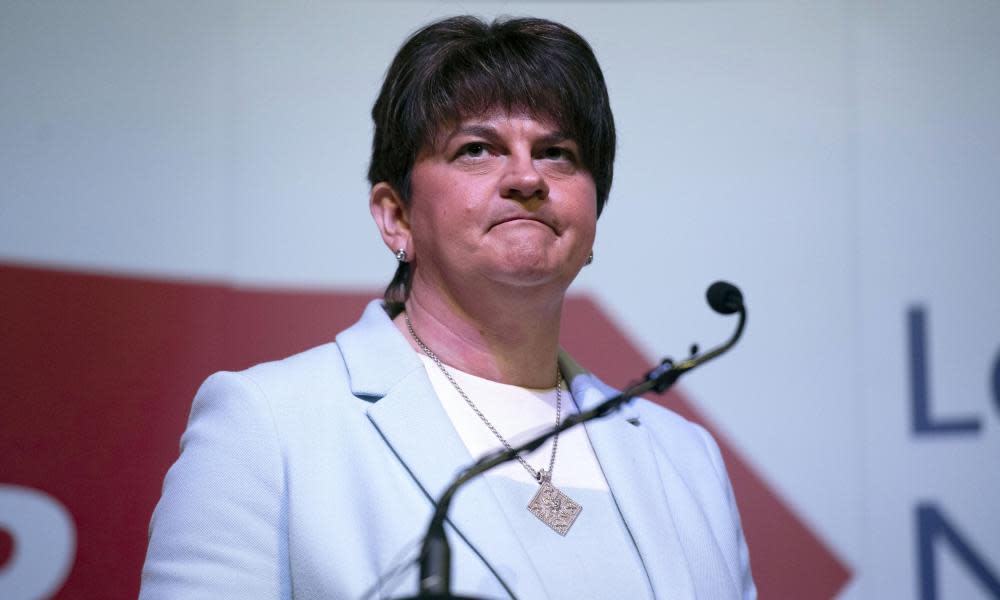The Guardian view on Boris Johnson’s Brexit: no troubling the truth

When political historians come to study the arguments and the rhetorical style that shaped this general election, the resignation statement of the British diplomat, Alexandra Hall Hall, should be considered a key document. Ms Hall Hall stood down last week as Brexit counsellor at the UK embassy in Washington because, she wrote, she was no longer able to “peddle half-truths on behalf of a government I do not trust”.
The obfuscatory arts of bluster and baseless assertion have become a house style during the election campaign for Boris Johnson and his allies. But they have been deployed with particular recklessness on matters affecting the two nations within the United Kingdom that voted against Brexit, both of which have profound concerns about their future within the union. With lofty and presumptuous arrogance, Mr Johnson has ruled out, as if by fiat, the possibility of any negotiations between a future Conservative government and Nicola Sturgeon, first minister of Scotland, over a second independence referendum. In the context of the anger that would be generated by the extreme Brexit he plans to pursue, that will prove a difficult line to hold.
But it is on Northern Ireland, and the nature of its post-Brexit trade relationship with the rest of the UK, that the prime minister’s cynical dissembling has been unforgiveable, given the stakes. Two leaked reports have now exposed the emptiness of Mr Johnson’s pledges. One, from the Treasury, challenged his rhetorical assertions that, under the Brexit deal, Northern Irish businesses would enjoy “unfettered access” to the UK market. Treasury officials judged that for goods travelling in either direction across the Irish Sea: “Customs declarations and documentary and physical checks … will be highly disruptive to the NI economy.” The second leaked document, this time from the Department for Exiting the EU, warns of the logistical complexity of implementing the deal’s protocol on Northern Ireland. Delivering the necessary infrastructure and systems, say the report’s authors, will be a huge “strategic, political and operational challenge” – one so complex that it could delay the implementation of Mr Johnson’s deal beyond December 2020.
The response has been yet more bombast from the prime minister, who has breezily suggested that people should simply believe what he says on the subject of checks. At the weekend he again said the judgment of his own Brexit secretary, Stephen Barclay, on the subject was “wrong”. Last month he said businesses in Northern Ireland would be able to throw any customs declarations “in the bin”. The characteristic use of the demotic style was revealing. In an important sense, Mr Johnson does not care whether he is believed on this or on other matters. He and his advisers calculate that the voters needed to secure a parliamentary majority care more about “getting Brexit done” than they do about its potential ramifications for Northern Ireland. In an election designed to exploit popular frustration with Brexit stasis, the strategy has been to direct a message of can-do optimism at a largely English target audience.
As a result, at the close of an enervating, strangely lifeless campaign, political resentments are brewing which have the potential to cause an existential crisis for the UK. Ms Sturgeon said today that “the contemptuous way Scotland has been treated” justifies a second Scottish independence referendum, whether or not Brexit takes place. The DUP leader, Arlene Foster, accused Mr Johnson of betraying unionist voters, by breaking his promise that there would be no trade barrier in the Irish Sea. Attention to detail, when it comes to Northern Ireland, should be a moral imperative, for reasons that need not be spelled out. Those future historians may marvel at the fecklessness of a campaign that blithely ignored that, and other truths.

 Yahoo News
Yahoo News 
